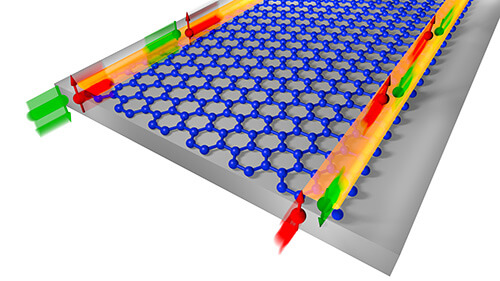In recent years, studies on two-dimensional substances have found an explosive trend. Almost every time, scientists have announced a breakthrough or application, such as graphene that often grabs headlines. However, researchers at the University of Würzburg in Germany have developed another ultra-thin material, bismuthene. It is a special combination of materials that deposits a single layer of germanium atoms on a silicon carbide substrate. Its characteristics can bring about advances in computing and data transmission because of its high efficiency in electronic handling.

This material is classified as a material such as "top insulator", which is internally insulated but has surface conduction (quantum effect). Conductive channels in the material prevent spin scattering, thus reducing electronic losses.
The only problem is that they usually only work well at a temperature of -270°C, and this restriction makes their use in electronic equipment and other fields unrealistic.
The good news is that Bismuthene can operate at room temperature (even higher temperatures) while having the same properties as other topological insulators. After applying the germanium film to the substrate, the atoms spontaneously form a structurally stable hexagonal chemical bond.
This form is the same as what we see on graphene. Unlike graphene, however, Bismuthene's chemical bonds are based on silicon carbide.
Prof. Ronny Thomale, one of the researchers, explained: “In the normal state, niobium is a conductive metal, and at room temperature and higher temperatures, a single-layer honeycomb is still a unique insulator.â€
Because this material can be used at higher temperatures, it makes it an ideal choice for the electronics field. The conductive path of the crucible is very stable and data transmission is extremely efficient.
With microscopy, scientists have confirmed that Bismuthene can send information almost without data loss. This transmission channel is 'protected'.
Another researcher, Ralph Claessen, said: "This method allows less electron spin during data transfer." At the same time, since there is no need for supercooling to study the quantum effects in the store channel, the field of self-selected electronics is also expected to usher in rapid development.
Of course, advanced research on quantum data transmission is still in its infancy and is far from commercial applications.
Exposed Showers System,Shower Faucet,Rain Shower Sets,Shower Rain System
kaiping aida sanitary ware technology co.,ltd , https://www.aidafaucet.com